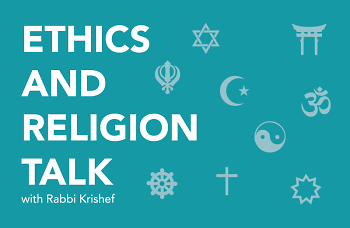Father Kevin Niehoff, O.P., a Dominican priest who serves as Judicial Vicar, Diocese of Grand Rapids, responds:
“Remember the creation story where the serpent tempted Eve and Adam in the Garden of Eden? Evil has been present since shortly after the beginning of creation and manifests itself in different forms. What is important in the creation story is that human beings exercised free will in their disobedience to God and this resulted in a sin that is called original because it is passed down from the origins of faith, that is from Adam (Baltimore Catechism online, question 59).
“One could improperly conclude that God created evil. God did not create evil. God allows evil because he gave not only angels but also human beings free will. Exercising that free will, some angels ‘chose to be unfaithful and were cast into hell’ (Baltimore Catechism online, question 44) and is described in the Gospel according to Matthew, ‘depart from me, you cursed, into the eternal fire prepared for the devil and his angels’ (Bible: English Standard Version).”
Rev. Ray Lanning, a retired minister of the Reformed Presbyterian Church of North America, responds:
“Many have asked this question, to which there is no definitive answer in Scripture or the Reformed Confessions. We know that the angels of God were created prior to the creation of the world recorded in Genesis 1 and 2, because they were witnesses to it; see Job 38:7, where they are called ‘morning stars’ and ‘the sons of God.’ And we know that in God’s providence, some of these angels were permitted to fall into sin and damnation (Jude 7).
“This rupture in the ranks of the angels seems to be the point of origin for the evil we now experience in the world. Hostility to the purposes of God moved one fallen angel, whom we know as Satan, the ‘adversary’ of our souls (I Peter 5:8), to tempt Adam and Eve and draw them to destruction with his lies and misrepresentations (Genesis 3). ‘Sin entered the world, and death by sin’ (Romans 5:12). Evil persists (and multiplies!) because fallen men and women persist in the way of sin and rebellion against their divine Creator. ‘Their feet run to do evil … wasting and ruin are in their paths’ (Isaiah 59:7).”
The Reverend Colleen Squires, minister at All Souls Community Church of West Michigan, a Unitarian Universalist Congregation, responds:
“I would say the root of evil stems from fear or the absence of love in humanity. This type of fear is manifested in hateful actions, anger, and causes pain and suffering. One of the greatest evils in our country is our long history of racism in all forms. We have created and supported elaborate systems to hold entire groups of people down. This type of evil exists from fear of being inferior. Imagine a world where we would work together so that everyone could rise to their greatest potential.”
Fred Stella, the Pracharak (Outreach Minister) for the West Michigan Hindu Temple, responds:
“According to the Hindu tradition, what we refer to as evil is the result of the Divine, which existed in its unmanifested state, expanding into manifestation. In the unmanifested state, there are no opposites, such as heat/cold, left/right, etc. But in this manifested state of relativity, everything has an opposite. It means that if goodness exists on this plane, its opposite must as well.
“For simplicity’s sake here, let’s define evil as any state of consciousness or action that pulls us away from God. Obviously, this includes injury to another person. As far as what motivates us to perform evil actions, it is said that ignorance is the cause. The more we are ignorant of our essential unity with one another, all being of divine origin, the more likely we are to commit heinous acts. The cure for ignorance is, obviously, knowledge. But for one to truly turn from the dark to the light, it requires more than a person or scripture chastising someone. While that might spark a positive movement, it is the development of inner understanding that truly changes us.”
My response:
The thing that we perceive as ‘evil’ is baked into the fundamental nature of creation, a necessary by-product of free will. It was not caused by the serpent in the Garden of Eden story. That story was only a demonstration of the fact that human beings were created with free will. If human beings did not have the ability to freely choose their path, sometimes causing harm, they would be no better than automatons programmed by God. It is only because we have the ability to transcend our ability to do harm to others and choose the path of love and goodness, even to our own short-term detriment, that makes us truly good people. That is the path that Torah, in my tradition, or other scriptures, literature, or sources of Divine wisdom in other traditions, urge us to embrace.
This column answers questions of Ethics and Religion by submitting them to a multi-faith panel of spiritual leaders in the Grand Rapids area. We’d love to hear about the ordinary ethical questions that come up in the course of your day as well as any questions of religion that you’ve wondered about. Tell us how you resolved an ethical dilemma and see how members of the Ethics and Religion Talk panel would have handled the same situation. Please send your questions to [email protected].
The Rapidian, a program of the 501(c)3 nonprofit Community Media Center, relies on the community’s support to help cover the cost of training reporters and publishing content.
We need your help.
If each of our readers and content creators who values this community platform help support its creation and maintenance, The Rapidian can continue to educate and facilitate a conversation around issues for years to come.
Please support The Rapidian and make a contribution today.
